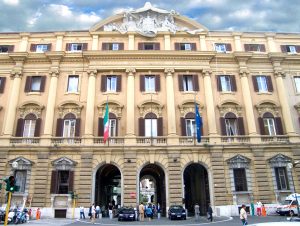Interlink and the inGOV partnered up to organize a workshop on the long-term sustainability of co-
creation and co-production. The workshop was held in Ghent from May 23 until May 24 2022 and was organized by KU Leuven, Radboud University, University for Continuing Education Krems, and Ghent
University. It combined expertise in co-production and co-creation of public services from multiple
countries. Besides presentations and paper discussions there also was a plenary workshop on the
sustainability of co-production.
The workshop addressed the question of whether and how co-creation can be scaled up and sustained over time to create long-term collaboration between professionalized service providers in public agencies and citizens.
May, 23rd
The workshop began on Monday with four presentations on co-production in times of Covid-19:
- The first presentation explored the process of virtual living labs during the Covid-19 pandemic. Also, it showed a literature review on individual and collective co-production in Education.
- It continued with a presentation on the possibility of sustainable co-production sparked by the pandemic.
- The third presentation was on co-production, trust, and the politicization of public health policy during the Covid-19.
- The last presentation talked about providing local services through volunteering platforms prior to and during Covid-19.
For the rest of the day presentations on studying co-production were held.
Next, the workshop continued with citizens and professionals as co-producers in primary education and on a long-term vision for the Digital Common Household Unit Public Service in Malta. The workshop finished that day with a presentation on a practical approach to achieving peaceful neighborhoods in Johannesburg by 2030.
May, 24th
On the 24th, the focus was on the effects and context of co-production and studying digital co-production.
- The presentations on co-production effects and the co-creation of public values showed a literature review on the effects of co-production and co-creation in public services, a presentation on how to assess digital co-production in public services, and a presentation on the exploration of public professionals dealing with conflicting interest in the co-production of public services.
- The presentations on exploring the context of co-production showed the switch from the conceptual to the practical on the centrality of stakeholders in the co-creation of sustainable public services.
- Another presentation dived into the possibility of the inner life of governmental arrangements sustaining co-creation.
- It continued on to the presentation on the legitimacy of local co-creation under the circumstances of low party politicization.
- The last presentations of the day and of the workshop revolved around studying digital co-production. It showed nine key issues in service co-production and technology, crafting and managing digital co-creation of public services, and developing sustainable digital public services & co-creation in the public sector.
The workshop ended with a plenary workshop on the sustainability of co-production.
Radboud’s paper on the quality of the digital co-production
During this workshop, the Radboud University presented its paper on the quality of the digital co-
production that addressed the following question:
- How does the perceived quality of digitally co-produced services influence levels of acceptance, satisfaction, and trust among civil servants and citizens?
To answer this question, the concepts of acceptance, satisfaction, and trust needed to be defined. Building on the literature of both technology studies and public administration research, it can be argued that acceptance, satisfaction, and trust in digitally co-produced public services can be understood as an effect of the quality of such services. Additionally, it can be argued that the inclusion of value-based indicators accounts for the specific context of digitally co-produced services in the public sector.
In the discussion of the stakeholders’ perspectives on quality, the Radboud team further argued for the importance of sensitivity to quality being a contested terrain.





